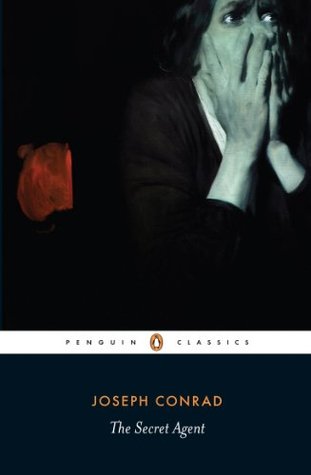More on this book
Community
Kindle Notes & Highlights
Then the vision of an enormous town presented itself, of a monstrous town more populous than some continents and in its man-made might as if indifferent to heaven’s frowns and smiles; a cruel devourer of the world’s light.
And Mr Verloc, steady like a rock – a soft kind of rock – marched now along a street which could with every propriety be described as private.
The sacrosanct fetish of today is science.
Stevie, seated very good and quiet at a deal table, drawing circles, circles; innumerable circles, concentric, eccentric; a coruscating whirl of circles that by their tangled multitude of repeated curves, uniformity of form, and confusion of intersecting lines suggested a rendering of cosmic chaos, the symbolism of a mad art attempting the inconceivable.
He seemed to sniff the tainted air of social cruelty, to strain his ear for its atrocious sounds.
‘Do you know how I would call the nature of the present economic conditions? I would call it cannibalistic. That’s what it is! They are nourishing their greed on the quivering flesh and the warm blood of the people – nothing else.’
He felt at the moment like a tight-rope artist might feel if suddenly, in the middle of the performance, the manager of the Music Hall were to rush out of the proper managerial seclusion and begin to shake the rope.
This barrier of blazing lights, opposing the shadows gathered about the humble abode of Mr Verloc’s domestic happiness, seemed to drive the obscurity of the street back upon itself, make it more sullen, brooding, and sinister.
It was as though he had been trying to fit all the words he could remember to his sentiments in order to get some sort of corresponding idea. And, as a matter of fact, he got it at last. He hung back to utter it at once. ‘Bad world for poor people.’
‘Don’t you know what the police are for, Stevie? They are there so that them as have nothing shouldn’t take anything away from them who have.’
His thick arms rested abandoned on the outside of the counterpane like dropped weapons, like discarded tools.
but his state of dismay suggested to me an impulsive man who, after committing suicide with the notion that it would end all his troubles, had discovered that it did nothing of the kind.’
It is universally understood that, as if it were nothing more substantial than vapour floating in the sky, every emotion of a woman is bound to end in a shower.
Mrs Verloc gazed at the whitewashed wall. A blank wall – perfectly blank. A blankness to run at and dash your head against.
Mrs Verloc entertained no vain delusions on the subject of the dead. Nothing brings them back, neither love nor hate. They can do nothing to you. They are as nothing. Her mental state was tinged by a sort of austere contempt for that man who had let himself be killed so easily.
He positively saw snakes now. He saw the woman twined round him like a snake, not to be shaken off. She was not deadly. She was death itself – the companion of life.


